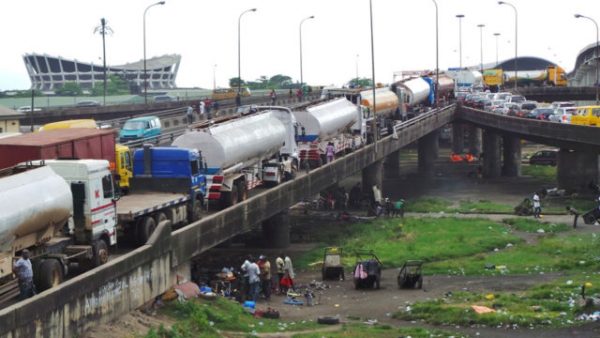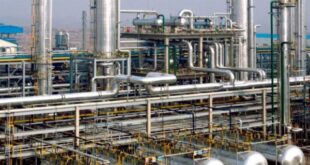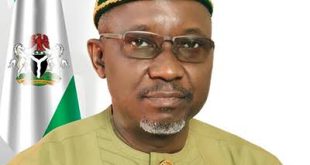 ‘NNPC must move to Niger Delta to encourage IOCs’
‘NNPC must move to Niger Delta to encourage IOCs’
Tracking electoral promises by Nigerian politicians for their implementation could be a tricky affair. In most cases, those promises are not originally meant to be fulfilled; they are usually made on the spur of the moment to garner support and accolades from the swooning crowd. Once these politicians turn their back they hatch yet other promises to be made to the next crowd of supporters or victims. Whenever such politicians are called out, their handlers begin to spin a lot of tales in the guise of giving nuanced interpretations that contradict what was so obviously said.
Vice President Yemi Osinbajo has fallen into the same category of politicians. At least two of the promises or orders he made last year are yet to be fulfilled. The first was the order he gave to international oil companies to immediately relocate their headquarters to the Niger Delta. He gave the order on March 2, 2018 at a town hall meeting in Uyo, Akwa Ibom State. The oil majors remain where they are.
The Acting President had urged the Minister of State, Petroleum, Dr. Ibe Kachikwu, to begin the process of engaging the International Oil Companies (IOCs) on the way forward to actualise the directive, saying “I think it is the right thing to do”. However, Kachukwu promptly ignored Osinbajo’s directive.

The second was the order he gave to tankers and trucks on July 21, 2018, when he made an unexpected visit to Apapa, Lagos, and was confronted with the siege of that axis of Lagos. The order was for a 72-hour immediate removal of all trucks and tankers from Apapa for a free flow of traffic. Mr. Osinbajo made the two orders as Acting President; till date, those two orders remain, as they were -mere orders.
Mr. Osinbajo, who made an on-the-spot assessment of Apapa traffic gridlock, directed authorities concerned to restore sanity on the expressway, and for the Ministry, Department and Agencies (MDAs) to speed up the decongestion of the port. According to the vice president’s directive, the operation will be carried out by a collaborative effort of the Nigeria Police Force, Nigeria Navy, Nigeria Army, the Nigeria Air Force, FRSC and the NSCDC, LASTMA, LASEMA, container truck drivers, National Association of Road Transport Owners, NUPENG, and Road Transport Employers Association of Nigeria.
Osinbajo landed first at the Tin Can Island park, flown in by a Nigerian Navy chopper, and was accompanied by the Transport Minister Rotimi Amaechi and senior Naval and Police officers. In fact, the head of the presidential task force set up to enforce the order and Lagos State Police Commissioner, Mr. Edgar Imohimi, had actually begun to evacuate the trucks, when he was inundated with calls from higher authority and allegedly succumbed to pressures. He soon soft-peddled on Osinbajo’s evacuation order, and the hope of reprieve Lagosians had expected from Osinbajo faded long before it started.
Now the 21-day ultimatum issued by residents and business owners in Apapa area of Lagos in December to government to clear the area of all articulated vehicles or incur their wrath expires in a few days. The aggrieved residents have vowed to shut down indefinitely all business activities within Apapa and its environs if government failed to comply with their demand. Spearheading the agitation on behalf of the residents and business owners is Brigadier General Shola Ayo-Vaughan (rtd), who said they were prepared to block all entries, both in and out of Apapa, since the traffic gridlock had already wrecked their businesses and robbed them of good life.
Ayo-Vaughan accused government and its agencies of conniving with the shipping companies for their deliberate refusal to implement policies meant to keep the trucks and containers off the road. The aim, according to him, is to force landlords, residents and business owners out of Apapa. He said the long plan of government and its allies was to turn Apapa into a port city.
He alleged that the situation had been made worse because shipping companies feed fat on demurrage charged containers. Another resident regretted that Apapa residents now live in perpetual fear due to recurring armed robbery attacks by hoodlums who now use Apapa as hiding place. She also lamented that some families during emergencies had lost loved ones in need of medical care to the total blockade of access roads by the articulated vehicles.
Six months after, however, Lagosians are still waiting for the fulfillment of Osinbajo’s order to restore sanity to Apapa and environs. It remains to be seen how government will react to the planned blockade of routes in and out of Apapa by residents and business owners.On the other hand, Governor Nyesom Wike of Rivers State expressed disappointment with the oil majors last December, when he berated them for failing to heed Osinbajo’s order to relocate their headquarters to the region they find convenient to drill oil, but insecure to relocate their businesses and pay taxes accordingly.
On December 15 at the 60th anniversary of Shell, one of the major culprits, Wike blasted the oil majors thus, “You find this region comfortable enough to drill oil and generate revenue that sustains the entire country. But when it comes to location of your headquarters, very many excuses emerge. “Those who talk of insecurity in Niger Delta forget that they are secure enough to work on oil fields in different communities. This level of injustice is not good for any country. I hear that the majority of your workers receive their salaries in Lagos and Abuja, with their taxes deducted at those locations. We want you to return to our states and energise our communities with your presence.”
Wike is not alone in the economic injustice of the oil majors’ refusal to relocate to their areas of operation in the Niger Delta. Radical Marxist academic and professor of oral literature, Gordini G. Darah, lent a nationalistic approach to the argument when he said not just the foreign oil majors of Shell, Chevron, Agip and others should relocate, but the oil behemoth, Nigerian National Petroleum Corporation (NNPC), should actually spearhead the relocation of oil majors for fairness and equity. He stated in a telephone conversation from Delta State that NNPC held the key to the relocation of oil majors back to the Niger Delta, as it was before and during the Nigerian Civil War in 1968.
Darah also said Osinbajo was either not sincere with his order to the oil companies or he didn’t mean it or that he didn’t have the courage to implement his order, otherwise he should have followed his order with a written statement to that effect.
According to Darah, “Oil majors argue that there was no written statement asking them to relocate. Don’t forget he was Acting President and Chairman of Reconciliation Committee on Niger Delta at the time. If he didn’t issue a statement, how can you obey a verbal demand? So, he didn’t mean it.
“In any case, the major oil company is NNPC; it has 60 per cent of stakes in the oil industry in the joint venture agreements with the foreign oil majors. Shell, Chevron and others are foreign companies. Whatever the regulator wants is what they must do. NNPC has its triple towers in Abuja, not where the oil comes from. This is not a matter we shall give up on. We have to keep at it as the victims of injustice.”
Darah traced the historical trajectory to the relocation of the oil companies from the Niger Delta to Lagos in 1968 at the height of the civil war on grounds of safety. He said the relocation in 1968 was as a result of the diarchy between Obafemi Awolowo and Yakubu Gowon, where Awolowo was the master planner, with Gowon merely looking on. He noted that such a threat had since ceased and it was unjustifiable for the oil majors including NNPC to still remain outside the region where they have their economic activities.
“When the war ended and ‘no victor no vanquished’ was declared and a nine-point rehabilitation and reconstruction programme was launched, why weren’t the oil companies asked to go back to their original base of operations? So, it’s the colonization policy of the Federal Government of Nigeria. Let NNPC spearhead the relocation for a nationalistic spirit and the foreign oil majors will have no choice in the matter.
“President Muhammadu Buhari is the Minister of Petroleum. Why is he not exercising that power for equity and fairness?”A member of Pan Niger Delta Area Petroleum Producing Forum (PANDEF), King Alfred Diette-Spiff, also said NNPC has no business in Abuja, noting, “PANDEF expresses gratitude to the Federal Government on the policy statement made during your visits, when you ordered oil companies to relocate their offices to the Niger Delta. This is a major policy issue that will facilitate socio-economic state of the communities where the oil companies operate. The NNPC headquarters should also be relocated to the Niger Delta because they have no business in Abuja.”
An All Progressives Congress chieftain, who will be sourly disappointed by Osinbajo’s inability to implement his order is Mrs. Temi Harriman, who sponsored the Petroleum Act bill in 2001, designed to give the Niger Delta greater say in the oil industry. The bill was shot down on the floor of the House, as it pitted members from the North against those from the South.
At Osinbajo’s order in March, she had said excitedly, “I feel vindicated that the government has finally listened to this wise and sensible proposal that has long been coming. As I said then and it is as obvious then and now, the relocation of headquarters of the oil companies to the Niger-Delta will curtail vandalism and sabotage. I said then on the defeat of the bill and still firmly believe, that history is on our side, the side of those who bear the brunt of exploitation of oil production that has sustained the wealth and revenue of Nigeria for the last 60 years.
“The directive by the vice president will go a long way in boosting relations between the oil producing companies and the communities where they operate and ease the hurt among the people who see the oil companies as strangers in their environment.”
But poet, environmental activist and chair of Friends of the Earth International, Mr. Nnimmo Bassey, said the multinational oil companies would not relocate because government has not put necessary pressures on them to do so. He noted that government was much beholden to them as its major source of income and this gives the OICs bloated image that makes them get away with a lot of things.
According to him, “The economy is dependent on their activities. So, without a reconfiguring of the business architecture, it will still be what the oil companies are doing; the same thing with Petroleum Industry Governance Bill (PIGB). The oil companies are comfortable with the way things are. It is actually sinful for them to operate in the Niger Delta and spend their money elsewhere. It is unjust, unfair, and immoral. It distorts the economy.”
unjust, unfair, and immoral. It distorts the economy.”
Bassey said the oil majors’ willful degradation of the Niger Delta environmental is because their top executives do not live among the people to also feel the harmful impact of oil exploration, as it affects the farmlands, waterways and human beings.“It makes them reckless in polluting the environment and they don’t care because they don’t live there and suffer what the locals suffer,” he said. “Oil destroys the wellbeing of the people. Also, taxes and investments in services are denied the Niger Delta economy. The oil sector is a heavy spending industry and this would have huge impact on the local economies of their host communities. They can’t exploit oil in the Niger Delta and spend the money elsewhere. So, government should sign all bills relating to the oil sector for Nigeria to get away from the policies that harm the people on whose land oil is exploited.”
Bassey also chided NNPC for operating from Abuja instead of having its office in the region in which it has business, saying Abuja should actually have a small liaison office instead, and not the triple tower sprawling edifices that insult the intelligence of Niger Delta people.
However, an insider at Total, who spoke to The Guardian on condition of anonymity, said he could neither confirm nor deny that the company has conformed to Osinbajo’s directive or not, but added that the oil company’s head office still remains in Lagos just as it has regional offices in Port Harcourt and Abuja.
In an earlier report by The Guardian, the oil firms had said their external communications and business networks were more efficient in Lagos, the nation’s commercial nerve. They equally argued that the sector’s regulator and investment vehicle, the Department of Petroleum Resources (DPR) and National Petroleum Investment Management Services (NAPIMS), are in Lagos.An IOC official had said, “Oil companies liaise with DPR and NAPIMS almost on a daily basis (and sometimes, they meet more than once in a day).
“The financial framework of the country in terms of investment and commercial banking is very standard in Lagos compared to the Niger Delta.This is critical to our business.” A spokesperson for another oil major said: “If anyone must relocate to the Niger Delta, it should be Nigerian National Petroleum Corporation (NNPC), which has the major stake in most of the oil mining licences in the region. But the NNPC rather has its head office in Abuja, and no one is calling for its relocation to the Niger Delta.”
Meanwhile a top presidency source, however, said Osinbajo’s directive could not be taken as a policy statement, as he only made a suggestion rather than gave an order of relocation and as such the oil majors were not bound to obey it.But spokesperson for Shell Nigeria, Bamidele Odugbesan, had told The Guardian correspondent in a telephone interview that Shell Petroleum Development Company of Nigeria (SPDC) had its headquarters in Port Harcourt way back. He noted that the organisation has catchment areas in Delta, Bayelsa, Rivers, Imo and Abia, hence the location of its head office to the Niger Delta some years back.
But Odugbesan noted that Shell Nigeria Exploration and Production Company (SNEPCo), which operates 120 kilometres offshore, off the coast of Nigeria in the Gulf of Guinea, has its office in Lagos, adding, “For SNEPCo, the host community is the whole of Nigeria and not limited to the Niger Delta. SNEPCo’s Bonga field, for instance, is closer to Lagos than it is to Port Harcourt.”
Indeed, Darah’s argument that Osinbajo didn’t actually mean the order sits well with another reading of the failure to relocate. Lagos is the major beneficiary of the oil majors’ refusal to relocate. Nigeria is a mono-economy based on oil receipts. Any planned relocation of the oil majors will mean removing the economic bedrock of the state.
The banks, for instance, would also consider relocating their head offices to where the money is. An official of an oil major alluded to it. Government will then be forced by the oil majors to rebuild the abandoned ports in the Niger Delta in cities like Warri, Koko, Port Harcourt, Calabar, and Onne. This would automatically deflect the port congestion in Lagos and take most shipping traffic away from Apapa. What this would also mean is that the volume of traffic on the Lagos-Benin-Asaba would ease, as goods from ports in the South would arrive in the Southeast faster and at cheaper rates.
These are the possible scenarios Osinbajo’s failed relocation order would have thrown up. But it never happened because forces higher than him possibly intervened and shot his oil majors’ relocation order down. Indeed, it is a measure of Osinbajo’s weight as a politician, who is swimming in unfamiliar, shark-infested waters.What it also means is that Darah’s victimization argument against people of the Niger Delta will continue to be an albatross that hangs heavy on the necks of the Nigerian government that continues to treat the goose that lays the golden eggs with disdain.
 MMS PLUS NG – Maritime, Aviation, Business, Oil and Gas News Online Newspaper with coverage in Maritime, Oil and Gas, Aviation, Power and Energy as well as Financial News
MMS PLUS NG – Maritime, Aviation, Business, Oil and Gas News Online Newspaper with coverage in Maritime, Oil and Gas, Aviation, Power and Energy as well as Financial News









